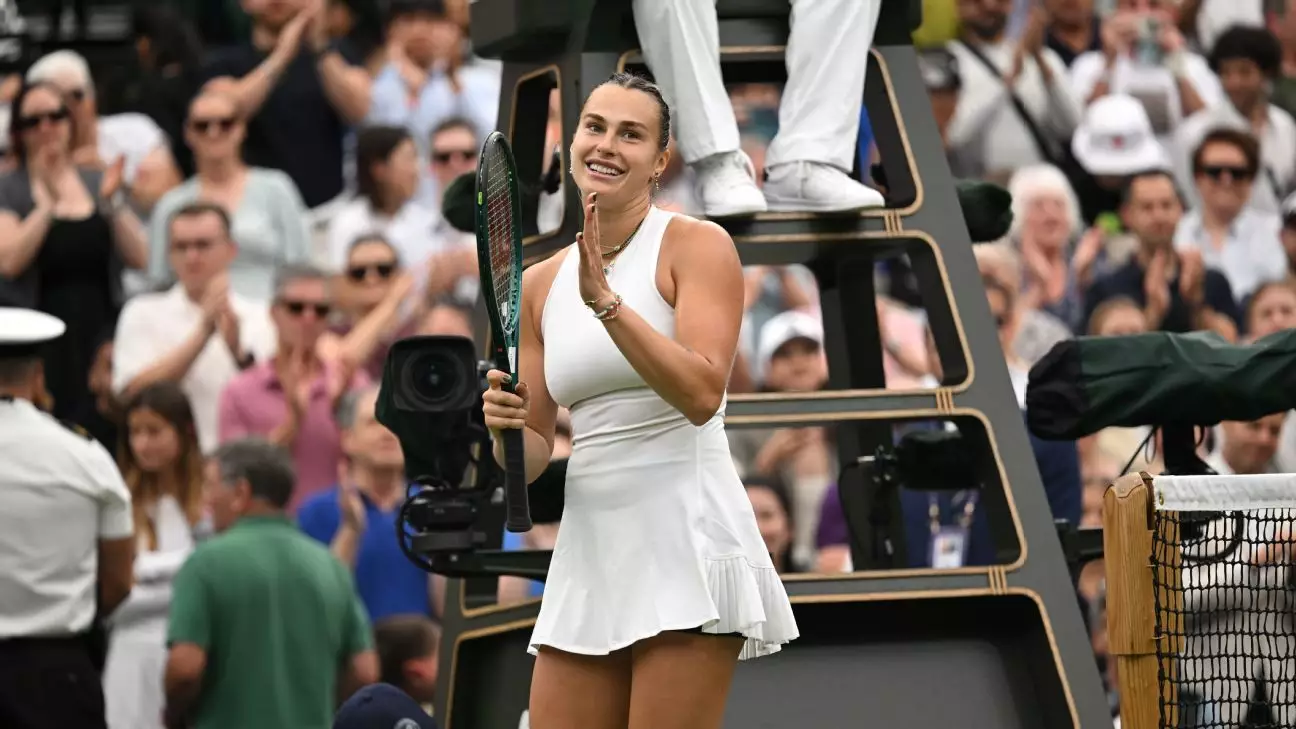Aryna Sabalenka’s consecutive quarterfinal appearances at major tournaments are not merely statistical achievements—they are a testament to her relentless pursuit of excellence and resilience under pressure. Her recent victory over Elise Mertens in Wimbledon exemplifies her capacity to overcome psychological and physical hurdles. Despite a familiar rivalry background, where Mertens held a slight edge, Sabalenka maintained her composure against a resilient opponent. Her ability to regain control after losing momentum demonstrates mental toughness that sets her apart from many contemporaries. Her record-breaking streak of 11 quarterfinal appearances, only second to Serena Williams, elevates her status on the tour and signals her emergence as a dominant force in women’s tennis.
What is particularly notable is Sabalenka’s capacity to perform under pressure, especially in high-stakes tiebreaks. Her undefeated run in 2025 tiebreaks, especially that nail-biting victory in Wimbledon’s second set, confirms her psychological strength. Typically, players struggle with maintaining focus during such decisive moments, but Sabalenka’s consistency reveals a superior level of mental acuity. Her performance on Centre Court was a blend of aggressive shot-making and composure, traits critical for breaking down nervy opponents and conquering their most stubborn defenses.
The evolution of a powerhouse player
Sabalenka’s rise is rooted in more than just her raw power; her game has evolved into a calculated blend of aggressive hitting, strategic shot placement, and mental fortitude. Her ability to handle the intensity of her rivals reflects her development into a well-rounded athlete. Her statement about the challenge of facing close friends on court reveals her sophisticated understanding of the emotional complexities involved in competitive tennis. She recognizes that personal familiarity can amplify game pressure, yet she still manages to deliver a dominant performance, indicating her maturity and focus.
Moreover, Sabalenka’s approach has shifted from relying solely on her physicality to embracing tactical gameplay. Her consistency at the tournament—dropping no sets so far—speaks volumes about her mental discipline and preparation. This unwavering focus sets her apart from many peers who falter under the bright lights of a major. Her disciplined approach is also evident in her impressive win-loss ratio in clutch moments, which highlights her ability to excel when stakes are high. She isn’t just aiming for victory; she’s forging a legacy rooted in resilience, grit, and relentless determination.
Challenging paradigms: Women’s tennis’ new power player
Skeptics might argue that Sabalenka’s rise is merely a flash in the pan driven by her power game, but her recent performances dismantle that notion. Her upcoming match against Laura Siegemund epitomizes the strategic evolution needed to succeed on grass courts—an arena where timing and court craft are as vital as raw strength. Siegemund’s risk-averse, strategic style presents a different challenge altogether. Yet Sabalenka’s adaptability to various playing styles confirms that her dominance is not superficial but deeply rooted in her continuous growth as a player.
The significance of Siegemund’s journey — reaching the quarterfinals at 37, and with her unorthodox playing style — highlights how perseverance and smart tactics can level the playing field against sheer power. Her comments about playing without pressure and her willingness to embrace the challenge reflect a mindset conducive to underdog success. Her performance serves as a reminder that tennis is not solely about physical dominance but also about mental strategy and adaptability.
As Sabalenka advances further in Wimbledon, her journey underscores a broader narrative of a new generation stepping into the spotlight—one that values resilience, consistency, and strategic depth. Her performance this year exemplifies how modern tennis champions are built not just on power, but on mental resilience and tactical intelligence. With her eyes set on breaking new ground and perhaps capturing her first Wimbledon title, Sabalenka’s story is one of relentless pursuit and unstoppable growth. Her evolution signals a seismic shift in women’s tennis, where resilience and versatility are now as essential as athletic prowess.

